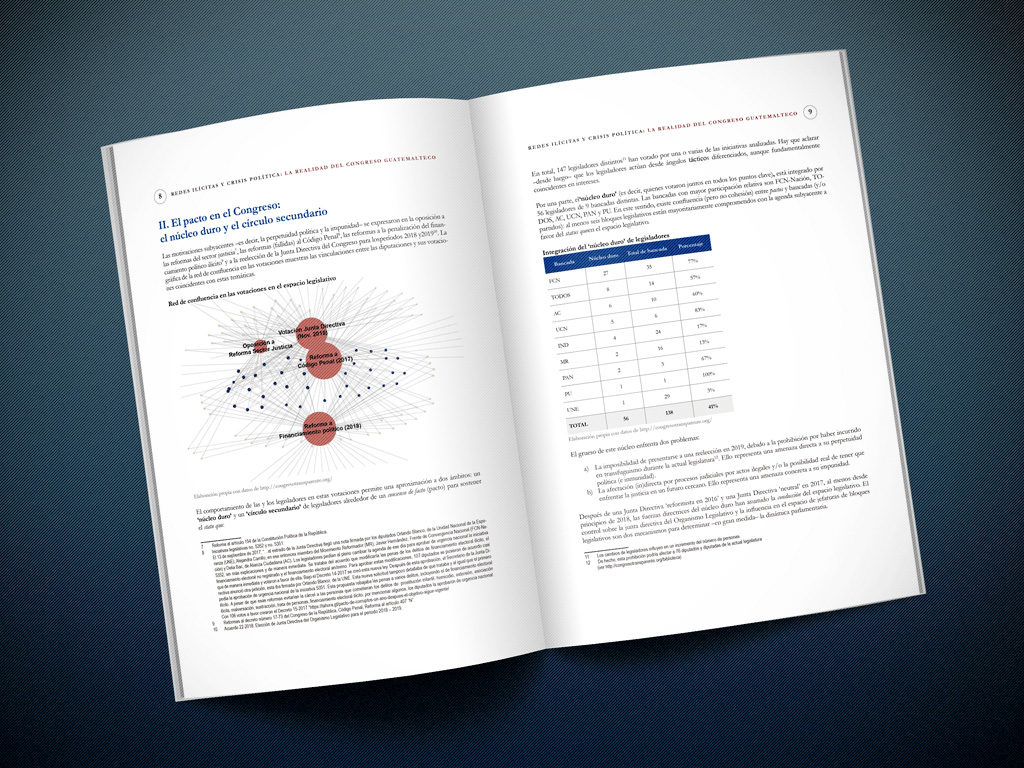NEWS 017 | Photo: CICIG.
The report on “Illicit Networks and Political Crisis: TheReality of the Guatemalan Congress” was presented to different sectors. This presentation was organized by the Mirna Mack Foundation, with the support of the International Commission against Impunity in Guatemala (CICIG) and Nómada, a digital newspaper.
Matias Ponce, CICIG’s Spokesperson, said in his opening remarks: “The joint work between the organized civil society and independent media, who are here today, are key in the fight against corruption and impunity.”
He added: “CICIG continues to work in Guatemala based on the agreement in force and according tothe ruling of the Constitutional Court and the decision of the UN Secretary-General, Antonio Guterres.
Helen Mack, President of the Mack Foundation, stressed that “the report gives us insights to understand the dynamics of the distortion of the democratic system in Guatemala.”
Conclusions
The investigator Harald Waxenecker highlighted among the main findingsof the study the underlying agreements and complexpower networks in the Legislative Branch have distorted the Guatemalan democracy, extending their reach and influence towards institutionalism in almost the entire country. The hard-core legislative force is composed of at least 56 legislators from 9 different political parties and interweaves with regional networks including some 43 consolidated public figures and 17 under training.”
He emphasized that the incidence of these networks inCongress affects the legitimacy of a fundamental institution for the Rule of Law to be the branch responsible for enacting the laws of the country.
Positive
Daniel Hearing, an independent analyst, Martín Rodriguez, head of Nómada, and Osvaldo Lapuente, CICIG’s political advisor commented on the study.
Daniel Hearing highlighted that the report seeks to conceptualize the way illicit networks operate in the country, and that that the CICIG model is very successful and it should be defended. Meanwhile, Martin Rodríguez stressed that the State would function if it has strong institutions, independent journalism, and active citizens.
Osvaldo Lapuente stressed that “when we talk about corruption, we have to take concrete steps so these actions will not remain unpunished.” He added that the fight against corruption needs strong, not rhetoric actions. Corruption is an effect but also a cause of how the democratic system works.”
PHOTO GALLERY:

